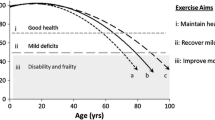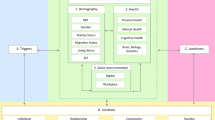Abstract
Introduction
Observational studies suggest psychosocial factors such as social support and loneliness are associated with vulnerability for cognitive decline in older adults. However, because of racial/ethnic homogeneity in prior studies focused on identifying these associations in predominantly White cohorts, less is known about the generalizability of these putative psychosocial mechanisms in a diverse population. Thus, we evaluated whether lower levels of loneliness were associated with better cognitive performance in our sample.
Methods
We conducted a cross-sectional study using 541 participants from (Health and Aging in Africa: A Longitudinal Study of an INDEPTH Community in South Africa) Dementia Cohort. Participants’ self-reported loneliness as exposure. Cognitive performance is measured using a neuropsychological battery as the outcome. Raw scores were converted into Z scores, and global cognitive function was created. Generalized estimated equation and robust regression analysis).
Results
Better global cognitive function is associated with a lower level of loneliness at (β = −0.0131, 95 % CI −0.1990, −0.0071) after adjustment for age, gender, and education. Lower levels of loneliness were associated with varying cognitive domains after adjustment for age, gender, and education; and persisted after additional adjustments of vascular risk factors.
Conclusions
Self-reported lower loneliness was associated with higher levels of cognitive performance in a rural South African cohort of Black older adults. Although these findings and the potential of reverse causality need to be further validated, our results suggest that an intervention study may be merited to assess whether reducing loneliness lessens vulnerability to cognitive decline.
Similar content being viewed by others
References
World Health Orgaization. Secondary World Health Orgaization 2022. https://www.who.int/health-topics/ageing#tab=tab_1.
HAALSI: Health and Aging in Africa: A Longitudinal Study of an INDEPTH Community in South Africa. Secondary HAALSI: Health and Aging in Africa: A Longitudinal Study of an INDEPTH Community in South Africa 2021. https://haalsi.org/about.
Bennett DA, Schneider JA, Tang Y, Arnold SE, Wilson RS. The effect of social networks on the relation between Alzheimer’s disease pathology and level of cognitive function in old people: a longitudinal cohort study. The Lancet Neurology 2006;5(5):406–12 doi: https://doi.org/10.1016/S1474-4422(06)70417-3.
Organization WH. Dementia. Secondary Dementia 2021. https://www.who.int/news-room/fact-sheets/detail/dementia.
Resnick B. Resilience in aging: the real experts. Geriatr Nurs 2008;29(2):85–6 doi: https://doi.org/10.1016/j.gerinurse.2008.01.003 [published Online First: 2008/04/09].
Donovan NJ, Wu Q, Rentz DM, Sperling RA, Marshall GA, Glymour MM. Loneliness, depression and cognitive function in older U.S. adults. International journal of geriatric psychiatry 2017;32(5):564–73 doi: https://doi.org/10.1002/gps.4495 [published Online First: 2016/05/09].
Lam JA, Murray ER, Yu KE, et al. Neurobiology of loneliness: a systematic review. Neuropsychopharmacology 2021;46(11):1873–87 doi: https://doi.org/10.1038/s41386-021-01058-7 [published Online First: 2021/07/06].
Zhu Y, Gao H, Tong L, et al. Emotion Regulation of Hippocampus Using Real-Time fMRI Neurofeedback in Healthy Human. Frontiers in Human Neuroscience 2019;13(242) doi: https://doi.org/10.3389/fnhum.2019.00242.
Salinas J, O’Donnell A, Kojis DJ, et al. Association of Social Support With Brain Volume and Cognition. JAMA Netw Open 2021;4(8):e2121122–e22 doi: https://doi.org/10.1001/jamanetworkopen.2021.21122.
Shankar A, Hamer M, McMunn A, Steptoe A. Social isolation and loneliness: relationships with cognitive function during 4 years of follow-up in the English Longitudinal Study of Ageing. Psychosom Med 2013;75(2):161–70 doi: https://doi.org/10.1097/PSY.0b013e31827f09cd [published Online First: 2013/01/31].
Salinas J, Beiser A, Himali JJ, et al. Associations between social relationship measures, serum brain-derived neurotrophic factor, and risk of stroke and dementia. Alzheimers Dement (N Y) 2017;3(2):229–37 doi: https://doi.org/10.1016/j.trci.2017.03.001.
Sutin AR, Stephan Y, Luchetti M, Terracciano A. Loneliness and Risk of Dementia. J Gerontol B Psychol Sci Soc Sci 2020;75(7):1414–22 doi: https://doi.org/10.1093/geronb/gby112.
Hülür G. Structural and Functional Aspects of Social Relationships and Episodic Memory: Between-Person and Within-Person Associations in Middle-Aged and Older Adults. Gerontology 2022;68(1):86–97 doi: https://doi.org/10.1159/000514949 [published Online First: 2021/06/09].
Bassil DT, Farrell MT, Wagner RG, et al. Cohort Profile Update: Cognition and dementia in the Health and Aging in Africa Longitudinal Study of an INDEPTH community in South Africa (HAALSI dementia). Int J Epidemiol 2021 doi: https://doi.org/10.1093/ije/dyab250 [published Online First: 20211206].
Pinkston JB, Alekseeva N, González Toledo E. Stroke and dementia. Neurological Research 2009;31(8):824–31 doi: https://doi.org/10.1179/016164109X12445505689643.
Shively S, Scher AI, Perl DP, Diaz-Arrastia R. Dementia Resulting From Traumatic Brain Injury: What Is the Pathology? Archives of Neurology 2012;69(10):1245–51 doi: https://doi.org/10.1001/archneurol.2011.3747.
Kaffashian S, Dugravot A, Elbaz A, et al. Predicting cognitive decline: a dementia risk score vs. the Framingham vascular risk scores. Neurology 2013;80(14):1300–06 doi: https://doi.org/10.1212/WNL.0b013e31828ab370.
Harling G, Kobayashi LC, Farrell MT, Wagner RG, Tollman S, Berkman L. Social contact, social support, and cognitive health in a population-based study of middle-aged and older men and women in rural South Africa. Soc Sci Med 2020;260:113167–67 doi: https://doi.org/10.1016/j.socscimed.2020.113167 [published Online First: 2020/07/06].
Lee S, Pearce E, Ajnakina O, et al. The association between loneliness and depressive symptoms among adults aged 50 years and older: a 12-year population-based cohort study. The Lancet Psychiatry 2020;8 doi: https://doi.org/10.1016/S2215-0366(20)30383-7.
Fritsch T, Smyth KA, Debanne SM, Petot GJ, Friedland RP. Participation in Novelty-Seeking Leisure Activities and Alzheimer’s Disease. Journal of Geriatric Psychiatry and Neurology 2005;18(3):134–41 doi: https://doi.org/10.1177/0891988705277537.
Rousseeuw PJaY, V. “Robust Regression by Means of S-Estimators.” In Robust and Nonlinear Time Series Analysis, edited by J. Franke, W. Härdle, and R. D. Martin, 256–274. 1984;Vol. 26 of Lecture Notes in Statistics.
Salinas J, Beiser AS, Samra JK, et al. Association of Loneliness With 10-Year Dementia Risk and Early Markers of Vulnerability for Neurocognitive Decline. Neurology 2022: https://doi.org/10.1212/WNL.0000000000200039 doi: https://doi.org/10.1212/WNL.0000000000200039.
Sharifian N, Manly JJ, Brickman AM, Zahodne LB. Social network characteristics and cognitive functioning in ethnically diverse older adults: The role of network size and composition. Neuropsychology 2019;33(7):956–63 doi: https://doi.org/10.1037/neu0000564 [published Online First: 20190613].
Acknowledgement
We are most grateful to the HAALSI participants who have committed so much of their time and effort.
Funding
Study Funding: This research was supported by the Robert Katzman Research Training Fellowship in Alzheimer’s and Dementia Research cosponsored by the American Academy of Neurology, the American Brain Foundation, and the Alzheimer’s Association. None of the funding organizations and sponsors had a role in the design and conduct of the study; collection, management, analysis, and interpretation of the data; preparation, review, or approval of the manuscript; and, decision to submit the manuscript for publication.
Author information
Authors and Affiliations
Corresponding author
Ethics declarations
Conflict of interest: No conflicts of interest to disclose.
Supplemental eTables
Rights and permissions
About this article
Cite this article
Kyaw, K.T., Levine, A. Association of Loneliness with Cognitive Functions. J Prev Alzheimers Dis 10, 903–908 (2023). https://doi.org/10.14283/jpad.2023.60
Received:
Accepted:
Published:
Issue Date:
DOI: https://doi.org/10.14283/jpad.2023.60




